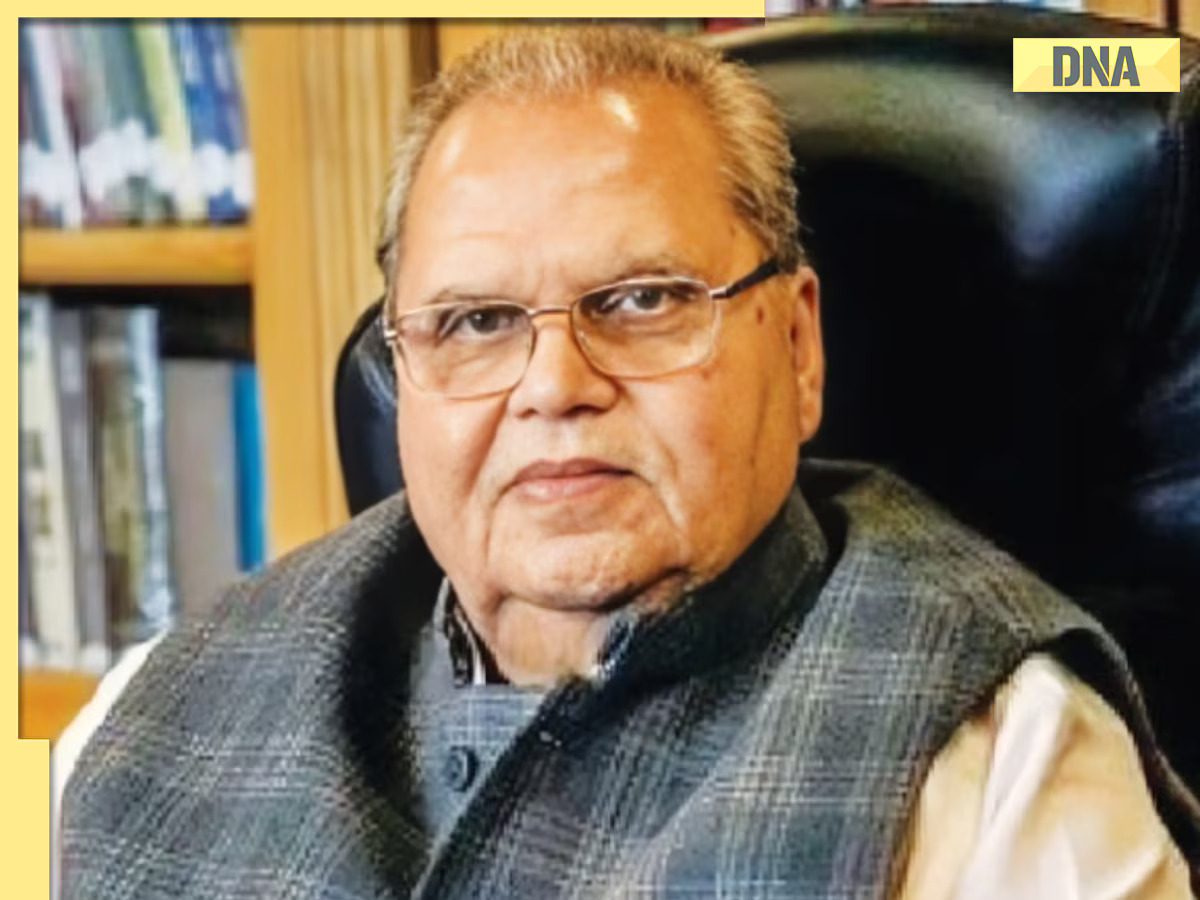Satya Pal Malik was born on 24 July 1946 in Hisawada village, Meerut district (now Baghpat), Uttar Pradesh—into a modest Jat family led by father Budh Singh.
From an early age, Malik was drawn to the socialist ideals espoused by Dr. Ram Manohar Lohia, a connection that shaped his worldview and political aspirations.
As a student at Meerut University, Malik emerged as a vocal leader, serving as President of the Meerut College Students Union (1966–67) and President of the Meerut University Students Union (1968–69)
These formative years solidified his commitment to activism and drove him toward public life.
Entry into Electoral Politics
Malik’s first electoral victory came in 1974, when he won as MLA from Baghpat on a Bharatiya Kranti Dal ticket, affiliated with Chaudhary Charan Singh. With 42.4% of the vote, he led over his CPI rival.
He soon became the Chief Whip of his party in the Assembly and later rose to be the General Secretary of the Lok Dal.

At the national level, Malik served in the Rajya Sabha from 1980–89, across two terms.
He then transitioned to the Lok Sabha, representing Aligarh (1989–91) under the Janata Dal banner. During this time, he held the post of Union Minister of State for Parliamentary Affairs and Tourism (Apr–Nov 1990)
A later attempt in 1996 on an SP ticket resulted in defeat, where he was placed fourth with around 40,789 votes.
In 1984, amidst political unrest triggered by the Bofors scandal, Malik joined the Indian National Congress, taking charge as General Secretary of the UP Congress.
He departed the party in 1987, disillusioned by political developments, and helped launch Jan Morcha, eventually merging with Janata Dal
A pivotal shift came in 2004, when Malik entered the Bharatiya Janata Party, later rising to be its national vice-president by 2012. He notably led the BJP Kisan Morcha, cementing his reputation as a champion of farmers.
Governor of Five States: Bihar to Meghalaya

From 2017 to 2022, Malik held the constitutional charge of Governor in five Indian states:
Bihar (Sep 2017–Mar 2018)
Odisha (Mar–May 2018; additional charge)
Jammu & Kashmir (Aug 2018–Oct 2019)
Goa (Nov 2019–Aug 2020)
Meghalaya (Aug 2020–Oct 2022)
His most defining—and controversial—assignment was as the 10th and final Governor of Jammu & Kashmir. His term coincided with the abrogation of Article 370 in August 2019, which revoked the region’s special status and bifurcated it into two Union Territories
That day—5 August 2019—remained a political watershed, making Malik a central figure in modern Indian constitutional history.
Voice of Dissent and Controversy
Post-governorship, Malik did not fade into silence. Rather, he became a vocal critic of government policy on several fronts.
Farmers’ protests. He supported farmers against the Modi government’s policies, which he termed as anti-farmers, and urged farmers not to return “humiliated”.
Pulwama attack (2023).
In a revealing interview, he asserted that PM Modi and NSA Ajit Doval discouraged him from raising security concerns—specifically that air transport denial contributed to the tragedy. He also cited how a vehicle laden with 300 kg of RDX went undetected—alleging a security lapse.
These statements intensified his public image as an outspoken critic, willing to confront uncomfortable truths.
Legal Troubles
The final chapter of Malik’s career was marred by legal controversy. On 25 May 2025, the Central Bureau of Investigation (CBI) filed a chargesheet implicating him and others in alleged corruption related to the ₹2,200-crore Kiru Hydroelectric Project in J&K. The matter cast a shadow over his legacy, blending the narratives of public service and suspicion.Malik’s health deteriorated over several years, impacted by diabetic kidney disease, hypertension, morbid obesity, and sleep apnea.

He was admitted to Delhi’s Ram Manohar Lohia Hospital on 11 May 2025, where he developed urinary tract infection, septic shock, hospital-acquired pneumonia, and multi-organ dysfunction. Despite ventilator support, antibiotics, dialysis, and other interventions—including battling disseminated intravascular coagulation (DIC) and acute-on-chronic kidney failure—his condition worsened, and he passed away at 1:10 pm on 5 August 2025—coinciding poignantly with the sixth anniversary of the abrogation of Article 370
Tributes flowed in from across the political spectrum. Mamata Banerjee praised him for speaking “unpleasant truths” and saluted his courage. Others recognized his advocacy, especially for farmers and transparency.
Legacy of Satya Pal Malik
Satya Pal Malik’s nearly eight-decade life was anything but ordinary. His journey—from a village in western Uttar Pradesh to the corridors of Janata Dal, Congress, and BJP—mirrored India’s shifting political terrain. As a student leader, parliamentarian, governor, and outspoken elder statesman, he left indelible marks on the political and constitutional anatomy of the nation.
While his tenure in Jammu & Kashmir will be remembered for constitutional upheaval, it also exposed his willingness to confront statecraft’s most fraught challenges. His later years, characterized by dissent and a measure of public rebellion, showcased a figure both respected and contentious.
Malik’s legacy remains complex: a tapestry of grassroots commitment, constitutional authority, personal controversy, and ideological candor. His life illuminates the possibilities—and pitfalls—of long-term public engagement. And as India reflects on his passing, his multifaceted story underscores the enduring tensions between power, principle, and the relentless evolution of political life.

Leave a Reply